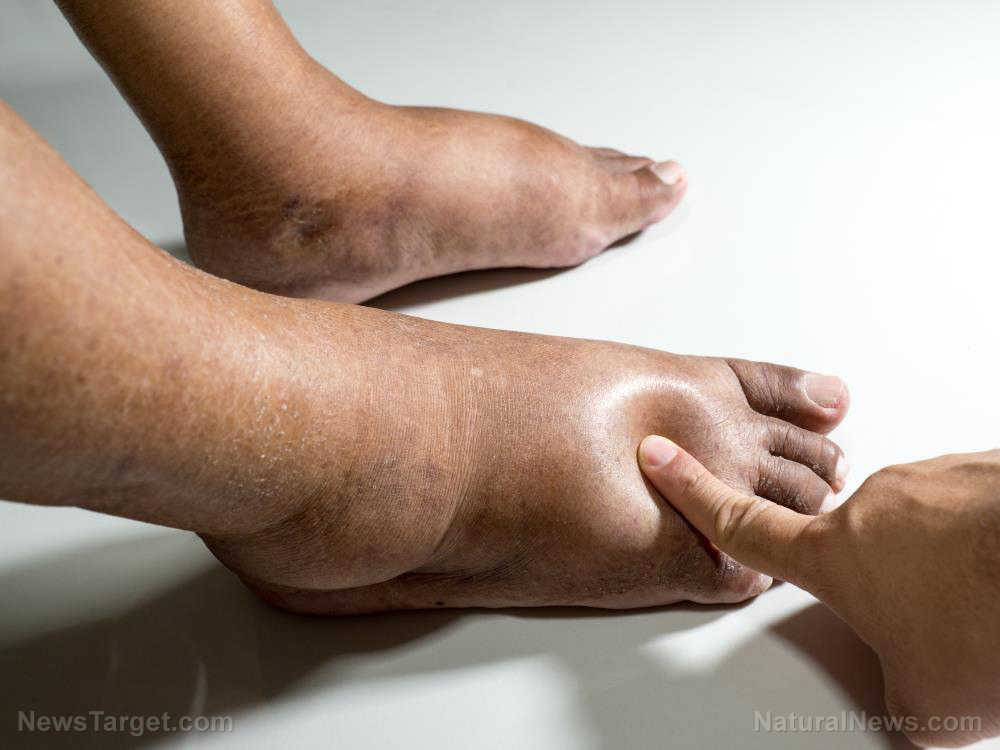Shedding the pounds and KEEPING the weight off helps improve cardiometabolic factors, say researchers
11/05/2020 / By Michael Alexander

Those who manage to lose weight and keep it off have a much higher chance at achieving optimal cardiovascular health, a recent study has found.
This is according to researchers from Tufts University, who found that people who successfully maintained their new weight, exhibited stabilization — and even further improvement — in their heart health. This is in stark contrast to individuals who, upon regaining their lost weight, would often show deterioration in their cardiometabolic risk factors.
“Regaining weight was associated with a reversal of the benefits seen from losing weight,” said Alice H. Lichtenstein, the senior and corresponding author of the study.
Keeping the pounds off is just as important as losing them
The researchers arrived at this conclusion after analyzing publicly-available data taken from the participants of the long-term Look AHEAD (Action for Health in Diabetes) trial. This trial assessed the association between weight loss and cardiovascular disease risk in individuals with obesity and Type 2 diabetes.
As part of their study, published in the Journal of the American Heart Association, Lichtenstein and the rest of the research team evaluated data from more than 1,500 people with Type 2 diabetes who were recruited for an intensive lifestyle intervention program that lasted one year. (Related: Health Basics: Weight Loss 101.)
These participants, after registering reductions in their weight, then entered a three-year maintenance phase in which they were encouraged to get regular physical activity as well as use a single meal replacement product each day.
The researchers found that those who lost 10 percent or more of their body weight and then maintained their weight loss, saw a significant improvement in their cardiometabolic risk factors, such as improved levels of HDL or good cholesterol, triglycerides, glucose and blood pressure, as well as waist circumference and diabetes control. Those benefits, however, deteriorated among those who regained the weight that they previously lost.
The study also found that the relationship between cardiometabolic risk factors and weight regain varied by sex and risk factor, with the researchers noting that while men and women responded similarly to weight regain on the basis of fasting glucose and hemoglobin A1c concentrations, they had marked differences on the basis of plasma lipid concentrations and blood pressure.
In addition, while no single cut point maximized the risk difference between those who maintained their new weight and those who didn’t, the “maintainers” who managed to keep off 75 percent of the weight they lost experienced the most benefits.
Weight maintenance and management are key
According to the researchers, these findings emphasize the importance of intervention programs focusing not only on weight loss but also on healthy weight loss maintenance and management.
“People tend to think of diets as short-term, but it’s really something that has to be lifelong,” Lichtenstein stated. “If you’ve found a successful way to lose weight, don’t revert to old habits. Figure out how to incorporate the changes you made to lose weight.”
As promising as their study is, however, Lichtenstein and the rest of the research acknowledged the need for further research. They noted that there is still much to be discovered regarding the long-term effects of weight loss and weight gain in individuals.
“The findings from this study emphasize the need to further investigate the long-term impact of partial weight regain after a weight loss intervention,” the research team said, acknowledging the challenge posed by keeping off previously lost weight.
For more stories on healthy and sensible weight management, visit Slender.news.
Sources include:
Submit a correction >>
Tagged Under:
cardiovascular health, diabetes, fight obesity, lifestyle choices, slender, weight loss, weight management
This article may contain statements that reflect the opinion of the author
RECENT NEWS & ARTICLES
BloodSugar.News is a fact-based public education website published by Blood Sugar News Features, LLC.
All content copyright © 2018 by Blood Sugar News Features, LLC.
Contact Us with Tips or Corrections
All trademarks, registered trademarks and servicemarks mentioned on this site are the property of their respective owners.





















